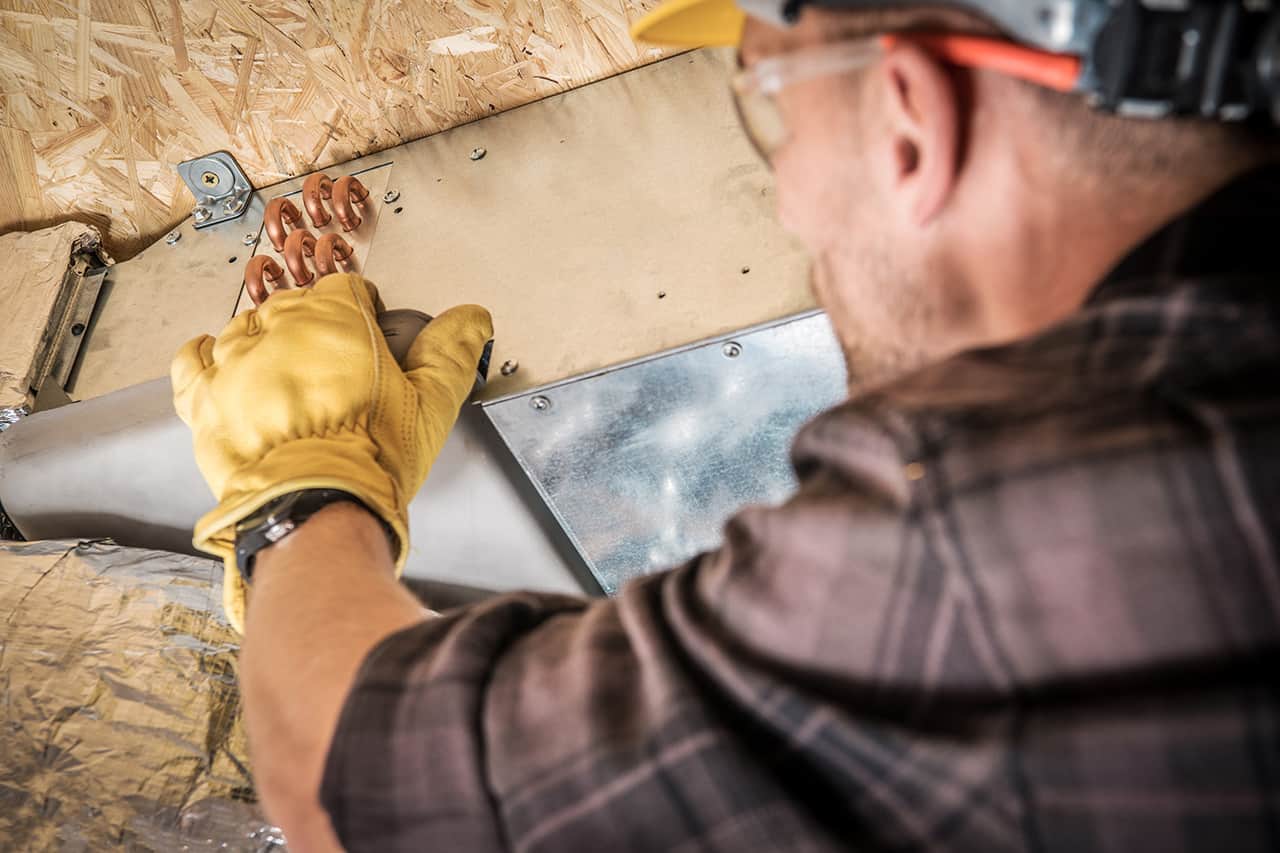
Welcome to the sunny side of life in Texas, where the steaks are juicy, and the heat is relentless! But if your peace is being disturbed by a symphony of strange noises and vibrations from your AC, or if your home feels like a stuffy oven rather than a cool haven, you might be facing a classic Texan dilemma: do you repair or replace your air conditioning system? We’re here to guide you through the signs of AC distress, which include insufficient cooling, uneven temperatures, skyrocketing energy bills that hint at decreased efficiency, and the nagging frequent repairs that come with an aging unit. When considering the brutal Texan sun, understanding whether to repair or replace your system is more than a comfort issue—it’s about survival. Let’s dive in and find out how to keep you chill in the Lone Star State!
Cost Comparison: Repairing vs. Replacing Your AC Unit
When your AC starts to show signs of trouble, one of the biggest questions on your mind is likely cost. Should you shell out for repairs, or is it wiser to invest in a new unit altogether? Let’s break down the numbers and see how short-term repair costs stack up against the long-term benefits of replacement.
Short-term Costs of Repairing Your AC
Repairing your air conditioner might seem like the more affordable option upfront. Common repairs include replacing filters, fixing refrigerant leaks, or sorting out electrical issues. However, it’s important to keep these expenses in perspective:
- Minor repairs can be cost-effective, especially if your AC unit is relatively new.
- Repeated repairs, though, add up and could be a red flag that your unit is on its last leg.
Long-term Benefits of Replacement
Replacing your AC unit is a larger initial investment, but it comes with significant advantages:
- Modern technology means new units are more energy-efficient, which translates into savings on your energy bills.
- A new AC can also provide better air quality and enhanced comfort features.
- It’s also worth considering that a new unit will come with a new warranty, potentially saving you on repair costs for years to come.
When Repairs Become More Costly Than a Replacement
There comes a tipping point where ongoing repairs can eclipse the cost of buying a new unit. This is often when:
- The unit is old and out of warranty.
- Repair costs are more than 50% of the cost of a new unit.
- You’ve needed multiple repairs within the last few years.
The Balance of Repair Costs, Energy Efficiency, and Unit Lifespan
Finding the right balance between repair costs, energy efficiency, and unit lifespan is critical. Consider these factors:
- Energy efficiency: Newer units can be up to 40% more efficient than older models, meaning significant cost savings over time.
- Lifespan: An AC unit typically has a lifespan of 10-15 years. If your unit is within this range, replacement might yield better value.
- Repair costs: Constant repairs not only stress your wallet but also give you unreliable cooling.
Ultimately, whether to repair or replace your air conditioning unit comes down to a mix of immediate costs, future savings, and personal convenience. It’s a decision that requires thoughtful consideration of all factors involved.
Understanding Your Air Conditioning System’s Lifespan
Have you ever wondered just how long your trusty air conditioning unit is supposed to last? Knowing the span of your AC’s life can help you make informed decisions about maintenance and replacements. Let’s reveal the mysteries behind the lifespan of your air conditioning system.
Average Lifespan of AC Units
The average lifespan of a home air conditioning system is about 10 to 15 years. This period can vary based on the brand, model, and how well the system has been maintained over the years. With the right care, some units can push past this timeframe, but efficiency usually begins to decline as they age.
Factors Affecting the Longevity of Your System
- Quality of Installation: A system that’s been properly installed will likely have a longer life.
- Maintenance Routine: Regular filter changes and professional tune-ups are essential for AC longevity.
- Usage Patterns: How often and at what setting you use your AC can impact its longevity.
- Climate: Units in regions with extreme weather may have shorter lifespans due to hard work.
When to Start Considering a Replacement
It can be tricky to decide when to repair or replace your air conditioning unit. Generally, if your unit is over 10 years old and frequently needs repairs, it might be time to consider a replacement. Additionally, if you’re facing a costly repair, like a refrigerant leak or a failed compressor, you should weigh the costs of fixing an old unit against investing in a new, more efficient model.
The Importance of Regular Air Conditioning Maintenance
Have you ever wondered why the most carefree summer days are often accompanied by the hum of an AC unit? That’s because a well-maintained air conditioner is the silent hero of our comfort during those hot months. But it’s not all about immediate gratification; there’s more to the story. Let’s delve into why keeping your AC in tip-top shape is a game-changer for your peace of mind and your wallet.
Preventive Measures to Avoid Heater and Cooling Problems
Think of preventive maintenance like a health check-up for your AC. It’s about catching the little hiccups before they turn into full-blown sicknesses. Small issues like a dirty filter or a squeaky belt might seem trivial, but they can lead to inefficiency, breakdowns, or even worse – a total system shutdown. Regular maintenance can nip these in the bud, ensuring you stay cool without a meltdown.
Scheduled Maintenance and Its Role in System Longevity
Regular maintenance isn’t just about avoiding the inconvenience of surprise repairs; it’s a long-term love affair with your air conditioning unit. By scheduling regular check-ups, you’re essentially extending the life span of your system. Parts are kept clean, fluids are topped up, and potential problems are addressed promptly, making sure your unit is ready to battle the scorching summer heat year after year.
The Cost Benefits of Regular Check-Ups
It’s easy to overlook those scheduled maintenance appointments when your AC seems to be running just fine. But here’s something to consider: regular maintenance can actually save you money. How? Well, a well-maintained AC runs more efficiently, which means it uses less energy and lowers your electricity bills. Plus, by avoiding major repairs through regular care, you’re keeping your hard-earned money securely in your pocket – where it belongs.
- Energy Efficiency: A clean and well-maintained unit uses energy more efficiently, reducing your bills and your carbon footprint.
- System Reliability: You’ll experience fewer unexpected breakdowns during peak times when you need your AC the most.
- Extended Lifespan: Regular maintenance extends the life of your AC system, meaning you won’t have to invest in a new unit as often.
- Cost Savings: Prevent expensive repairs or replacements down the road with routine checks that keep your AC in prime condition.
To sum it up, regular air conditioning maintenance is a bit like dental care for your home – it might not always be at the front of your mind, but it’s essential for avoiding pain down the road. So, don’t wait until your AC waves a white flag; give it a little TLC with routine maintenance and keep the cool air flowing smoothly.
How to Choose the Right HVAC Contractor for Your Needs
Finding a trustworthy HVAC contractor is as vital as the air your system provides. From the sweltering heat of the Texan summer to an unexpected cold snap, having a reliable professional can make all the difference. Here’s how to ensure you’re teaming up with the best in the business for your AC’s repair or replacement.
Local Contractor Experience in TX Climates
When it comes to AC units, one size does not fit all—especially in Texas. A local HVAC contractor with experience in the local climate will understand the unique demands and how to optimize your system for efficiency and longevity.
Required Qualifications and Quality of Labor
Ensure your chosen contractor has all the necessary qualifications. Licensed technicians should have completed requisite training and certification, assuring you of their expertise and commitment to quality labor.
Homeowner Reviews and Business Reputations
Take a deep dive into what other homeowners are saying. Online reviews and the contractor’s overall reputation in the business community are telling. A trail of satisfied customers usually points to a service provider you can trust.
Questions to Ask About Their Experience and Services
- How long have you been in business?
- Can you provide local references or case studies?
- Do you offer a warranty on your work?
- Are you available for emergency repairs?
- How do you determine whether to recommend repair or replacement?
Equipped with the right questions, you’ll gain insight into their approach and can make an informed decision based on their responses.




